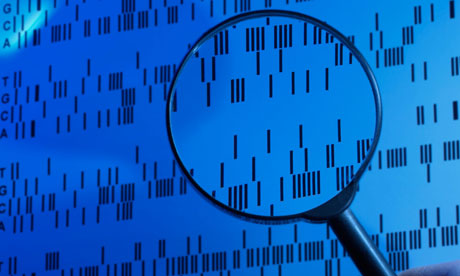While Cofactor is in the business of helping pharmaceutical, biofuel, and agricultural researchers discover more about the DNA & RNA they study, I wanted to take a moment to discuss an item that’s been in the news recently that relates to our field: the FDA intervening with the 23andMe DNA test.
With all of the advancements made in next-generation sequencing and genomics applications over the last several years, we’ve seen a trend to put this technology and all of its possible benefits (and drawbacks) into the hands of an ever-growing user base. This is great because as technology improves, it becomes cheaper, easier to use, and more accessible to those who don’t need to be “experts” to use it. But at the same time, the regulations and policies which govern such technologies and their uses will typically become ill-fitting.

Simon Belcher/Alamy
23andMe, “a DNA analysis service providing information and tools for individuals to learn about and explore their DNA”, offers everyday consumers the chance to understand more about their genetic makeup, including ancestry, and genes that could (could, mind you) lead to disease. As those of us in the scientific community know, in many cases, we don’t know definitively if certain patterns or aberrations in an individual’s DNA will lead to certain disease or disorders. This, coupled with the fact that these tests may easily be misinterpreted by consumers, could lead to significant issues down the road. The ultimate consequence of this uncertainty and the concerns it gives rise to has been an FDA ordered shutdown of the analysis portion of the 23andMe tests.
According to an article on the subject written by The Guardian:
“To be clear, for all its boldness, the FDA ban on 23andMe’s direct-to-consumer (DTC) genomics service is predicated on sensible public health concerns. After all, consumers receiving noisy, nebulous genetic information frequently make medical decisions that are misinformed, harmful, and drive up systemic healthcare costs.”
This is a point well taken. While it’s great that more information is being made available to more people, what is the price of this information, especially if it’s incomplete? Should everyone be given the choice to know what information is available, even if it is deemed incomplete? Ultimately, who makes the call as to when enough information is available to release to the general public? Ultimately, it may not really matter. More from The Guardian:
“For one, choking-off one reservoir of newly accessible medical information for patients does little to stem the tide of democratized healthcare. Because genomic sequencing can be divorced from the interpretation of sequence data, what is stopping a patient from sending raw genetic information to analysis services based abroad, over the internet? After all, the FDA’s ban has no jurisdiction over 23andMe lookalikes based in China or India. And what of services like WebMD – the hypochondriac’s haven – which offer patients checklists by which to self-diagnose their perceived symptoms? Do these not pose similar public health concerns? Yet, they persist largely uninhibited.”
It’s important to recognize both that it will be hard for the FDA to stop individuals from obtaining more information about their DNA, and that as it stands right now our understandings of certain parts of the genome and how it affects diseases is incomplete. Given such a situation, it’s hard to know what a right answer that best benefits human health would look like. Genomics as a whole offers vast and exciting areas of research and understanding. But in research and in policy it creates new questions we must wrestle with and understand.



